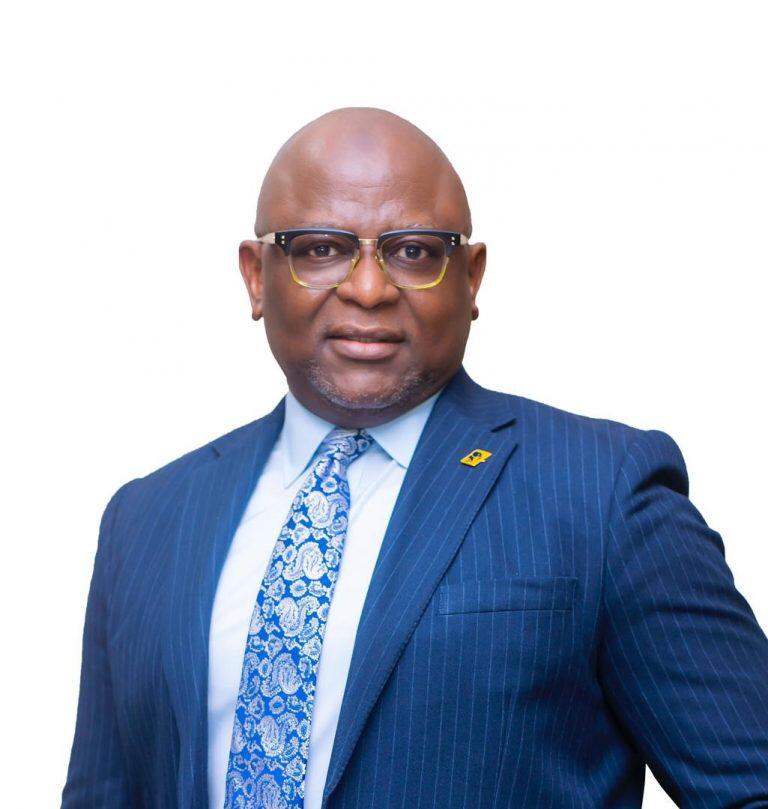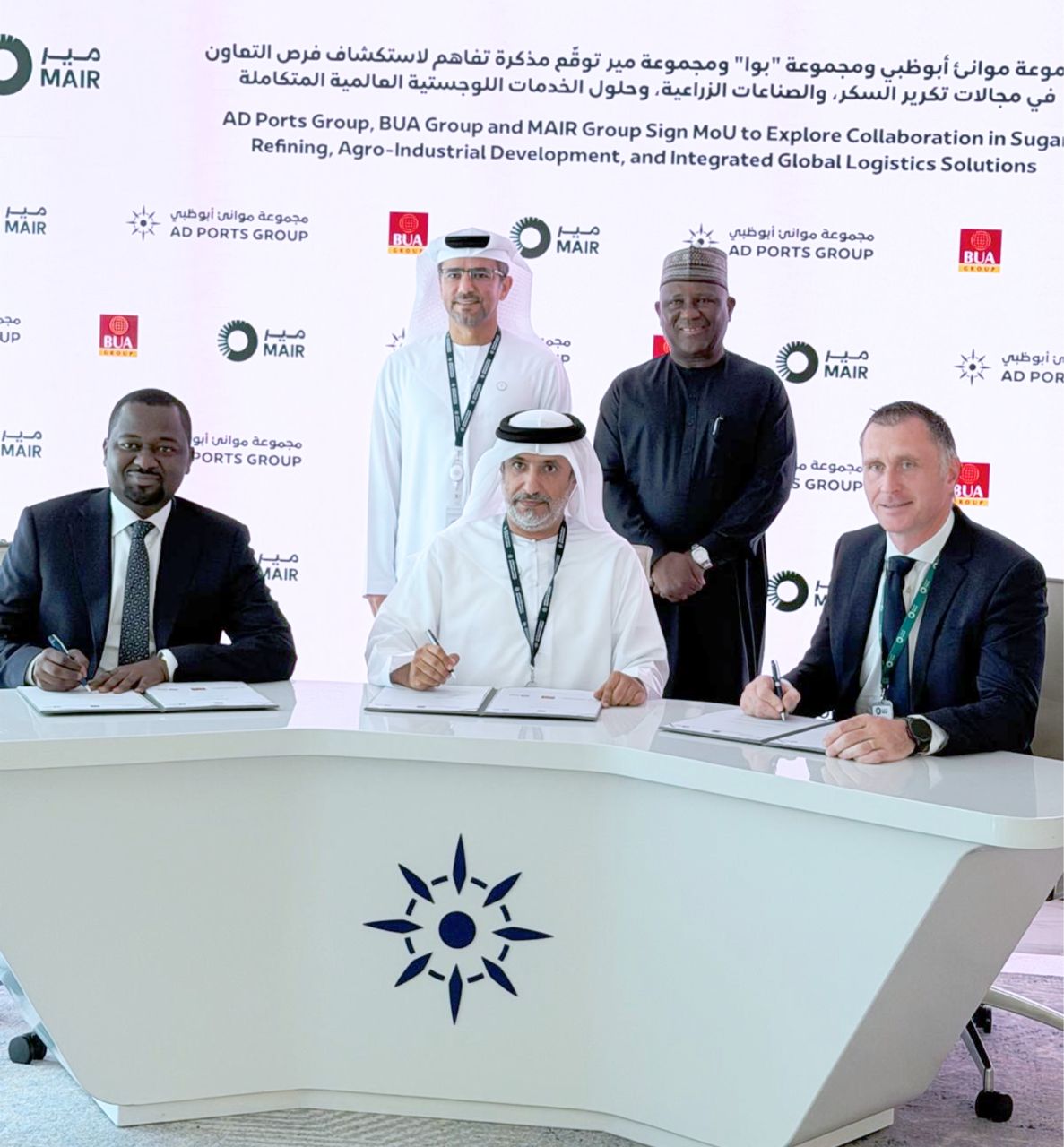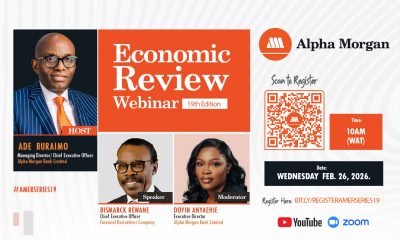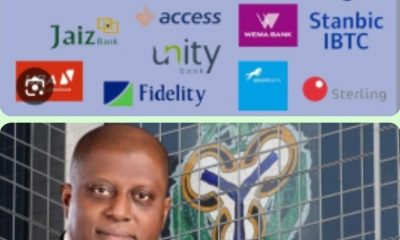Business
Analysis: Is First Bank’s acquisition of Heritage Bank and Polaris Bank a game changer?

Age they say is nothing but a number but not when you are 126 and still relevant. FirstBank Ltd, Nigeria’s oldest bank has in so many ways stood the test of time.
If there is any bank you can reference for experience when it comes to transformation and innovation from the second industrial revolution to what many see now as the fourth, then it is perhaps this bank. Innovate or die as they say.
Last week, news reports suggest the bank was considering an acquisition of Polaris and Heritage Banks respectively. The bank promptly issued a press release neither affirming nor denying that a deal was under consideration.
However, it said enough to warrant a review of the consequences of taking yet another bold step in the bank’s ageless journey in survival.
Heritage Bank which began operations in 2012 after acquiring the license and structure of the old Societe Generale Bank of Nigeria is not new to controversy.
In 2014 Heritage Bank did the unthinkable, it was announced by the Assets Management Corporation of Nigeria (AMCON) as the winner of the bid for the acquisition of the defunct Enterprise Bank.
Since then, reports about the bank’s ability to remain as a going concern have dominated the news. Polaris Bank, on the other hand, was created by the CBN after it took over the hugely mismanaged Skye Bank Plc.
The bank is yet to publish its financials and the impression out there is that the bank is on life support on the instruction of the CBN.
So, why could FirstBank or indeed any bank be interested in these banks? Last January, the CEO of Heritage Bank Mr. Ifie Sekibo revealed that it will soon receive fresh capital injection from yet to be disclosed investors, a development that is expected to push up the bank’s capital base and by so doing, drive growth.
This was the first official indication that the bank needed capital to survive and remain competitive. FirstBank’s position as the largest bank by total assets and deposits was also usurped by Access Bank following its acquisition with Diamond Bank.
To wrestle the bank, it’s position at the top, First Bank will have to consider both organic and inorganic means. Thus, an acquisition with Heritage Bank is logical. Heritage Bank also recently launched its digital banking business, Octopus putting it at the forefront of the FinTech driven future of banking.
FirstBank potential acquisition with Polaris is one that is hard to decipher from a value proposition. Thus, a possible deal will have to exclude liabilities for it to make sense.
To be fair, Polaris bank has reinvented itself over the last couple of years despite its legacy challenges and ability to attract deposits. From rebranding to launching new products it has struggled to remain relevant as AMCON continues its search for a buyer.
Last year, the bad loan bank announced it will step up a sale of the bank after the 2019 general elections.
Is this a good move for First Bank? First Bank has its own fair share of challenges and is currently undergoing a transformation. The bank is reining in on its notoriously high cost to income ratio and has also reduced its non-performing loans ratio. It has also led the sector in terms of financial inclusion and is also tech conscious with its very impressive banking app and associated services.
The race to scale driven dominance in the banking sector will likely hinge heavily on inorganic growth such as mergers and acquisitions. For a Holdco like FBNH, First Bank’s parent company, the structure allows target driven acquisitions which could solidify the bank’s position as a leading financial services supermarket.
But the risks are obvious and real. An acquisition is not just a combination of balance sheets, it can be a clash of cultures and an explosion of costs. Recent banking acquisitions have not really resulted in the so-called dominance it touts or cost synergies it hopes to optimize.
Nigeria’s largest banks by profits and market capitalization remain Zenith Bank and GT Bank and both avoided mergers and acquisitions during the Soludo driven banking consolidation race.
If FirstBank is to cut a deal to swallow both Polaris and Heritage Banks respectively, then it needs thorough due diligence and must avoid carrying on liabilities and costs that often weigh down on consolidation gains.
In 2017, we got a chance to ask the CEO of the bank, Dr Adesola Adeduntan if the bank could win the race to get to trillions in gross revenue. In response, he took a deep breath and remarked that First Bank was in it to win it. This acquisition may just be a chance to nick it.
Source: Nairametrics
Bank
Alpha Morgan to Host 19th Economic Review Webinar

Alpha Morgan to Host 19th Economic Review Webinar
In an economy shaped by constant shifts, the edge often belongs to those with the right information.
On Wednesday, February 25, 2026, Alpha Morgan Bank will host the 19th edition of its Economic Review Webinar, a high-level thought leadership session designed to equip businesses, investors, and individuals with timely financial and economic insight.
The session, which will hold live on Zoom at 10:00am WAT and will feature economist Bismarck Rewane, who will examine the key signals influencing Nigeria’s economic direction in 2026, including policy trends, market movements, and global developments shaping the local landscape.
With a consistent track record of delivering clarity in uncertain times, the Alpha Morgan Economic Review continues to provide practical context for decision-making in a dynamic environment.
Registration for the 19th Alpha Morgan Economic Review is free and can be completed via https://bit.ly/registeramerseries19
It is a bi-monthly platform that is open to the public and is held virtually.
Visit www.alphamorganbank to know more.
Business
GTBank Launches Quick Airtime Loan at 2.95%

GTBank Launches Quick Airtime Loan at 2.95%
Guaranty Trust Bank Ltd (GTBank), the flagship banking franchise of GTCO Plc, Africa’s leading financial services group, today announced the launch of Quick Airtime Loan, an innovative digital solution that gives customers instant access to airtime when they run out of call credit and have limited funds in their bank accounts, ensuring customers can stay connected when it matters most.
In today’s always-on world, running out of airtime is more than a minor inconvenience. It can mean missed opportunities, disrupted plans, and lost connections, often at the very moment when funds are tight, and options are limited. Quick Airtime Loan was created to solve this problem, offering customers instant access to airtime on credit, directly from their bank. With Quick Airtime Loan, eligible GTBank customers can access from ₦100 and up to ₦10,000 by dialing *737*90#. Available across all major mobile networks in Nigeria, the service will soon expand to include data loans, further strengthening its proposition as a reliable on-demand platform.
For years, the airtime credit market has been dominated by Telcos, where charges for this service are at 15%. GTBank is now changing the narrative by offering a customer-centric, bank-led digital alternative priced at 2.95%. Built on transparency, convenience and affordability, Quick Airtime Loan has the potential to broaden access to airtime, deliver meaningful cost savings for millions of Nigerians, and redefine how financial services show up in everyday life, not just in banking moments.
Commenting on the product launch, Miriam Olusanya, Managing Director of Guaranty Trust Bank Ltd, said: “Quick Airtime Loan reflects GTBank’s continued focus on delivering digital solutions that are relevant, accessible, and built around real customer needs. The solution underscores the power of a connected financial ecosystem, combining GTBank’s digital reach and lending expertise with the capabilities of HabariPay to deliver a smooth, end-to-end experience. By leveraging unique strengths across the Group, we are able to accelerate innovation, strengthen execution, and deliver a more integrated customer experience across all our service channels.”
Importantly, Quick Airtime Loan highlights GTCO’s evolution as a fully diversified financial services group. Leveraging HabariPay’s Squad, the solution reinforces the Group’s ecosystem proposition by bringing together banking, payment technology, and digital channels to deliver intuitive, one-stop experiences for customers.
With this new product launch, Guaranty Trust Bank is extending its legacy of pioneering digital-first solutions that have redefined customer access to financial services across the industry, building on the proven strength of its widely adopted QuickCredit offering and the convenience of the Bank’s iconic *737# USSD Banking platform.
About Guaranty Trust Bank
Guaranty Trust Bank (GTBank) is the flagship banking franchise of GTCO Plc, a leading financial services group with a strong presence across Africa and the United Kingdom. The Bank is widely recognized for its leadership in digital banking, customer experience, and innovative financial solutions that deliver value to individuals, businesses, and communities.
About HabariPay
HabariPay is the payments fintech subsidiary of GTCO Plc, focused on enabling fast, secure, and accessible digital payments for individuals and businesses. By integrating payments and digital technology, HabariPay supports innovative services that make everyday financial interactions simpler and more seamless.
Enquiries:
GTCO
Group Corporate Communication
[email protected]
+234-1-2715227
www.gtcoplc.com
Business
BUA Group, AD Ports Group and MAIR Group Launch Strategic Plan for World-Class Sugar and Agro-Logistics Hub at Khalifa Port

BUA Group, AD Ports Group and MAIR Group Sign MoU to Explore Collaboration in Sugar Refining, Agro-Industrial Development, and Integrated Global Logistics Solutions
Abu Dhabi, UAE – Monday, 16th February 2026
BUA Group, AD Ports Group, and MAIR Group of Abu Dhabi today signed a strategic Memorandum of Understanding (MoU) to explore collaboration in sugar refining, agro-industrial development, and integrated global logistics solutions. The partnership aims to create a world-class platform that strengthens regional food security, supports industrial diversification, and reinforces Abu Dhabi’s position as a hub for trade and manufacturing.
The proposed collaboration will leverage BUA Group’s industrial and logistics expertise, Khalifa Port’s world-class infrastructure, and AD Ports Group’s operational experience. The initiative aligns with the objectives of the UAE Food Security Strategy 2051, which seeks to position the UAE as a global leader in sustainable food production and resilient supply chains. It also aligns with Nigeria’s food production- and export-oriented agricultural transformation agenda, focused on scaling domestic capacity, strengthening value addition, improving post-harvest logistics, and unlocking new markets for Nigerian produce across the Middle East, Asia, and beyond.

Photo Caption: L-R: Kabiru Rabiu, Group Executive Director, BUA Group; Cpt. Mohammed J. Al Shamisi, MD/Group CEO, AD Ports Group; Saif Al Mazrouei, CEO (Ports Cluster) AD Ports Group; Abdul Samad Rabiu, Founder/Executive Chairman, BUA Group; and Steve Green, Group CFO, MAIR Group
Through structured aggregation, processing, storage, and maritime export channels, the partnership is designed to reduce supply chain inefficiencies, enhance traceability and quality standards, and also create a predictable trade corridor between West Africa and the Gulf.
BUA Group—recognised as one of Africa’s largest and most diversified conglomerates, with major investments across sugar refining, food production, flour milling, cement manufacturing, and infrastructure- brings extensive industrial expertise and large-scale operational capability to the venture. MAIR Group will provide strategic support in developing integrated logistics and agro-industrial solutions, creating a seamless platform for production, storage, and distribution.
Abdul Samad Rabiu, Founder and Chairman of BUA Group, said:
“This MoU marks an important milestone in BUA’s international expansion and reflects our long-term vision of building globally competitive industrial platforms. Together with AD Ports Group and MAIR Group, we aim to develop sustainable food production and logistics solutions that strengthen regional supply chains and support the UAE’s Food Security Strategy 2051.”
He further added that, “This partnership represents not just a commercial arrangement but a strategic food corridor anchored on shared economic ambition, resilient infrastructure, and disciplined execution, reinforcing long-term food security objectives for both nations.”
A representative of MAIR Group added:
“This collaboration underscores our commitment to advancing strategic industries in Abu Dhabi and building integrated solutions that reinforce the UAE’s position as a global hub for trade, food security, and industrial excellence.”
A spokesperson from AD Ports Group commented:
“Our partnership with BUA Group and MAIR Group highlights Khalifa Port’s role as a catalyst for high-impact industrial investments. This initiative will enhance regional food security, strengthen global trade connectivity, and support Abu Dhabi’s economic diversification goals.”
This MoU marks a historic collaboration that combines world-class infrastructure, industrial expertise, and strategic vision, setting the stage for a sustainable and resilient food and logistics ecosystem that will benefit the UAE, the region, and global markets alike.
-

 celebrity radar - gossips6 months ago
celebrity radar - gossips6 months agoWhy Babangida’s Hilltop Home Became Nigeria’s Political “Mecca”
-

 society6 months ago
society6 months agoPower is a Loan, Not a Possession: The Sacred Duty of Planting People
-

 news6 months ago
news6 months agoTHE APPOINTMENT OF WASIU AYINDE BY THE FEDERAL GOVERNMENT AS AN AMBASSADOR SOUNDS EMBARRASSING
-

 society5 months ago
society5 months agoReligion: Africa’s Oldest Weapon of Enslavement and the Forgotten Truth








